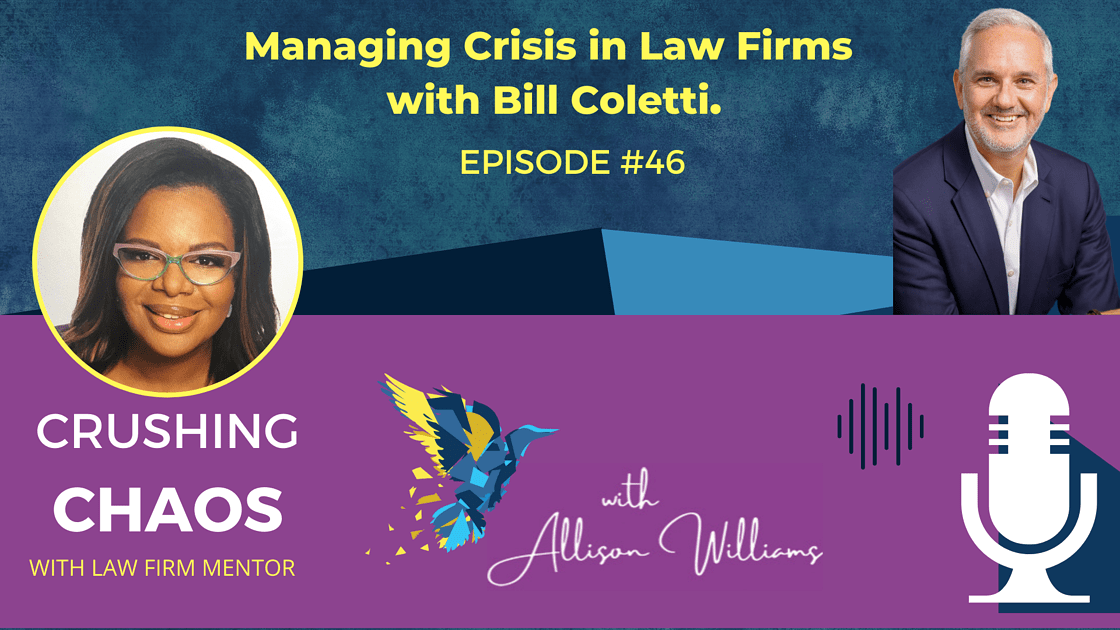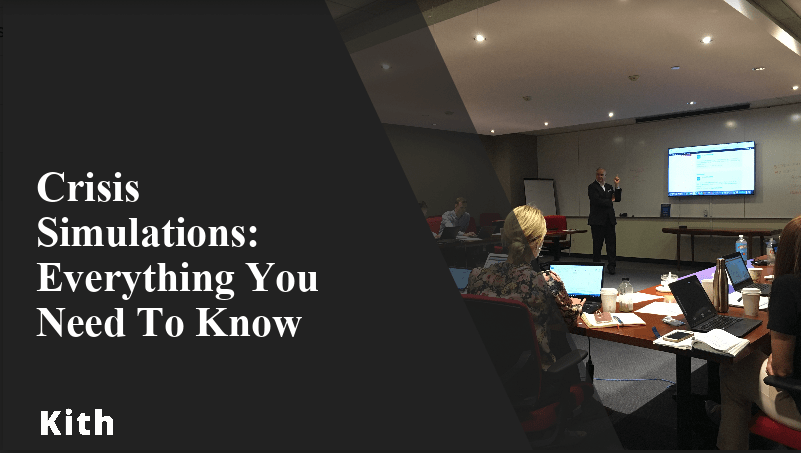Crisis Leadership Blog
Insights and perspectives on being the lighthouse during a crisis.
Crafting the Perfect Crisis Simulation
Crisis simulations are, in our opinion, truly the best way to train and evaluate your team when it comes to crisis readiness. And with the right recipe, you can create a crowd-pleasing simulation that will leave your team well-prepared for when a crisis strikes.

The Best Approach to Crisis
I was asked a really good question on a podcast, and I thought I’d share it with you. Because there is sort of this ongoing debate about if it is better to be creative or authentic during a crisis response.

The Best Way to Handle Fear
When fear shows up for me I think of it like this… It is a little voice in my mind that reminds me to be on guard ready to think before I speak.

Crushing Chaos
Law Firm Mentor is a business coaching service law firm attorneys. We help you grow your revenues, crush chaos in business, and make more money.

Preparing for Risk
I’ve been getting a lot of questions about this through the frame of crisis and crisis response and what organizations should do. In fact, I was speaking about this on a panel and was joined by an intelligence analyst.
By definition, Kith means a cadre of peers who shape opinions and attitudes while instilling sophisticated habits for action. As a way to live this value, we like to share resources that are building blocks to good crisis management and can help you start the path of protecting your reputation.
More Recent Insights

Creativity or Authenticity in Crisis?
Critical takeaways Crises are always a mix of unfamiliarity because every situation is different, and familiarity because the fundamentals of an effective response are the same. Unfortunately, sticking to these fundamentals and taking a ‘traditional’ approach can make your response seem old fashioned and overly conventional, tempting you to become...

Strategic Risks: Balancing Friction And Convenience
Critical Takeaways Digital friction is the resistance created where additional steps are required for someone to start using a device or service. Companies strive to reduce friction and increase convenience but this can be at the expense of security and other benefits. These tradeoffs can create strategic risks and you have to be prepared to explain your...

Four Questions to Help Diagnose your Crisis Patient
Critical takeaways Doctors have to sift through a lot of information quickly to get to a diagnosis and use a basic four-question model to do this. Crisis communicators can use a similar set of questions to get to the root of the issue for a corporation facing a crisis. These questions along with good pattern recognition will help rapidly identify the issue...

Achieving Crisis Mastery: The Case for Finding a Crisis Coach
Critical takeaways Mastery in a field comes after competence has been achieved but achieving mastery requires objective feedback to refine and optimize performance. Coaches are very common in sports and are beginning to be used in other fields to help practitioners hone their skills and to understand & eliminate the bad and expand focus on the good. A...

The Doctor Will See You Now: How Kith Serves Clients
David Maister is regarded as one of the world's leading thinkers on consulting firm structure and positioning. For decades, Maister studied the business of consulting and his writing and ideas form the foundation of what we now recognize as modern management consulting. What makes Maister so compelling isn't just the quality of his thinking, but the...

On-Demand Webinar: Crisis Simulations: Everything You Need to Know
When your crisis skillsets are revealed, are you confident you will like what you see? At Kith, we are firm believers that crisis simulations are the most valuable planning and preparedness tool available to an organization and should be a routine part of every company’s training regimen. Time and time again, we have seen the tangible benefits of...

Families in Crisis: Often the Guilty are Very Innocent
Critical takeaways Families and individuals who become caught up in a public scandal or personal critical moment will come under intense media and public scrutiny. However, unlike many companies, families and individuals are rarely prepared for this kind of adverse publicity and their naiveté can make things worse. Several of the same techniques that help...

Protesters have their place: and it doesn’t have to be at your front door
Critical takeaways Protests can be an effective way for people to make their point and they can be used against businesses of any size. Protestors have the right to picket your business but that doesn't mean that they can break the law or interfere with your staff, clients or prevent you trading. Planning ahead, focussing on peoples’ safety and careful...

To Spoke Or Not To Spoke, That Is The Question
Critical Takeaways Individuals or families caught up in a crisis should engage a spokesperson to help them manage the media as this is something they are ill-equipped to do themselves. This course of action has some pros and to consider while making the decision and I address these here. The benefits of professional support - insulation from the press and...

Crisis leader + crisis manager = a critical partnership
Critical takeaways Crisis Leaders and Crisis Managers are different roles but both are required for crisis success. Understanding the differences between the two roles - and how they complement each other - will help build a powerful partnership Here are three key distinctions between the two roles to help you select and prepare the right people for these...
The Kith Method
Good crisis management comes from a plan. Great crisis management comes from capability – and starts before you even smell smoke. That’s why we developed the Kith Method. We can help build and maintain a flexible capability that works for you.
Your reputation is an investment; time-consuming and costly to build and expensive to repair. Protect it.
